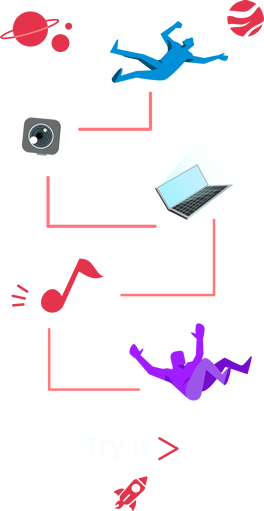Enhancing efficiency in music legal practices: leveraging technology for document preparation

Table of content
Enhancing efficiency in music legal practices: leveraging technology for document preparation - Introduction
Adequate document preparation is crucial in the music industry's legal domain, demanding precision and meticulous attention to detail.
The evolution of technology has brought about significant transformations in how music-related documents are created, reviewed, and finalized.
This shift towards utilizing technology has streamlined processes, improving productivity and efficiency in music legal practices.
Adopting technological advancements allows music legal professionals to meet the industry's growing demands, deliver superior services to clients, and effectively navigate the fast-paced digital landscape.

MAIN TAKEAWAYS
Technology Streamlines Document Preparation: The adoption of technology in music legal practices simplifies document creation and management, enabling lawyers to produce documents faster and with fewer errors. This shift towards digital tools enhances overall efficiency and productivity.
Wide Range of Technological Tools: From document management systems and e-signature platforms to AI-powered research tools, a variety of technological solutions are being utilized to facilitate document preparation. These tools offer standardized templates and secure collaboration options, significantly improving the workflow in music legal practices.
Enhanced Efficiency and Client Service: Leveraging technology allows music legal professionals to focus more on strategic tasks rather than administrative duties, thereby improving the quality of service offered to clients. This technological integration leads to a more responsive and effective legal practice within the music industry.
Best Practices for Technology Implementation: For successful technology integration, music legal practices must ensure data security, provide adequate training, and adhere to regulatory compliance. Following these best practices allows for a smoother transition to digital processes and maximizes the benefits of technological advancements.
Future Trends in Legal Technology: The future of music legal practices looks promising with advancements in AI, blockchain, and virtual reality expected to further revolutionize document preparation and management. These innovations promise to enhance accuracy, efficiency, and client satisfaction, keeping legal practices at the forefront of the digital transformation.
Evolution of Music Legal Document Preparation
However, technology integration has revolutionized this aspect of music legal work. Automation tools, template libraries, and document management systems have become essential in simplifying document creation and management.
Technology has empowered music legal professionals to focus more on strategic tasks than administrative duties, leading to streamlined processes and elevated service quality.

For example, utilizing tools that can convert audio file to text on Mac streamlines the creation of legal documents from recorded negotiations, contributing to the productivity gains technology brings to the field.
These tools work by employing advanced speech recognition algorithms that can identify spoken words and convert them into written text with surprising accuracy.
After the conversion, users can review and edit the transcribed text to ensure it accurately reflects the recorded audio, making adjustments as necessary for clarity and correctness.
This not only accelerates document creation but also enhances the precision of the final legal documents.
Advantages of Technology in Music Document Preparation
The adoption of technology in music document preparation offers several benefits to legal professionals:
Automation tools can speed up drafting processes, ensuring consistency in document formatting.
Template libraries, such as specialized music legal templates, offer standardized formats for various music-related documents, saving time and effort.
Digital tools enable secure collaboration, version control, and remote access to documents, facilitating seamless teamwork among music legal professionals regardless of their locations.
This integration streamlines the music document preparation process and enhances overall workflow efficiency, allowing music legal professionals to focus on strategic tasks and improve client service.

Types of Music Legal Tech Tools
The music industry is increasingly turning to technology tools to streamline processes and enhance productivity, including:
Document Management Systems: Offering centralized storage and easy access to music legal documents.
E-Signature Platforms: Streamlining signing processes by enabling electronic signatures enhancing document execution efficiency.
Music Legal Templates: Providing pre-designed templates tailored to music industry needs, simplifying document drafting.
AI-Powered Music Legal Research Tools: Using artificial intelligence to streamline research processes, enhancing efficiency.
Virtual Meeting and Collaboration Tools: Facilitating communication among music legal professionals, allowing for remote work capabilities and improved team productivity.
Embracing these legal tech tools modernizes music legal practices, improves workflow efficiency, and enhances client service delivery, positioning legal practitioners to adapt to the evolving landscape of music legal services.

Embracing Technology in Music Legal Practices
Legal professionals in the music industry must adhere to best practices when integrating technology into document preparation processes.
By following these guidelines, legal practitioners can maximize the benefits of technology in music document preparation, showcasing the versatility and customization capabilities of music legal templates in addressing specialized legal requirements.
Leveraging collaborative platforms and communication tools can enhance coordination among legal teams, promoting seamless sharing of information and documents for efficient workflow management.

Best Practices for Implementing Technology in the Music Industry
This entails ensuring data security, offering comprehensive training on new tools, sticking to industry regulations, and smoothly integrating technology into existing workflows.
For example, within music legal practices, specialized contracts for DJs are available through platforms such as lawrina templates demonstrating the adaptability and customization capabilities of legal templates to meet the unique legal requirements of the music industry.

Future Trends and Innovations
The future of music document preparation holds promising prospects with the continuous advancement of technology.
By embracing these cutting-edge technologies, music legal practices can stay ahead of the curve, simplify operations, and improve client experiences, positioning themselves as leaders in the evolving music legal landscape.
With the ongoing digitization of music consumption and distribution, the need for efficient legal practices will continue to grow.
Additionally, the integration of virtual reality and augmented reality into legal processes could offer immersive experiences for resolving disputes and engaging with music licensing agreements more interactively.
These advancements underscore the importance of staying abreast of technological developments to ensure that music legal practices remain at the forefront of innovation and service delivery.
Leveraging these technologies ensures that music legal practices remain competitive, adaptable, and responsive in a rapidly evolving digital landscape.

Enhancing efficiency in music legal practices - Conclusion
In conclusion, the integration of technology into music legal practices not only streamlines document preparation but also sets the stage for a more innovative and efficient future.
By embracing advancements such as AI, blockchain, and digital collaboration tools, legal professionals in the music industry can significantly improve their service delivery and adapt to the ever-changing digital landscape.
This evolution promises to enhance the accuracy, efficiency, and overall quality of legal work in the music sector, ensuring that practices remain agile and client-focused in an increasingly digital world.
Thanks for reading,
The CalypsoRoom Team
Frequently Asked Questions (FAQs)
How does technology enhance efficiency in music legal practices?
Technology boosts efficiency in music legal practices by automating repetitive tasks and facilitating easier document management and collaboration. This leads to faster document preparation and more time for legal professionals to focus on strategic work.
What types of technology are used for document preparation in music legal practices?
Music legal practices use various technologies for document preparation, including document management systems, e-signature platforms, legal template libraries, and AI-powered legal research tools. These technologies streamline the creation, review, and execution of legal documents.
How can law firms in the music industry implement technology for better document management?
Law firms in the music industry can implement technology by adopting document management systems for centralized storage and access, as well as e-signature platforms for efficient document execution. Training staff on these tools ensures seamless integration into daily operations.
What are the benefits of leveraging technology for document preparation in the music legal sector?
Leveraging technology for document preparation in the music legal sector reduces errors, saves time, and improves document consistency. It also enables remote collaboration, making the legal process more flexible and accessible.
How does automation affect the accuracy and speed of document preparation in music legal practices?
Automation significantly enhances the accuracy and speed of document preparation in music legal practices by minimizing manual errors and expediting the drafting process. This allows legal professionals to deliver high-quality documents more efficiently.
back
Written by CalypsoRoom Editorial Team
The CalypsoRoom Editorial Team is a skilled and diverse group of writers, researchers, and industry specialists who have access to Calypso's data and information in order to give you broad knowledge about the music industry as well as helpful advice to help you manage your music and dancing career.
Updated February 2024
Company number: 681223
James's Walk 31, Dublin, Ireland
contact@calypsoroom.com
+353 (89) 435 8928



